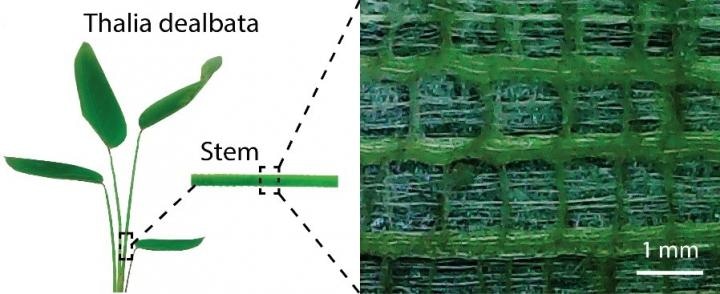Jun 22 2017
Versatile, light-weight materials with a combination of strength and resilience are vital for the development of flexible electronics, such as wearable sensors and bendable tablets. Aerogels are promising candidates for such applications, but so far, it has been hard to create them with both properties.
 A plant stem inspired researchers to develop a new, versatile aerogel for possible use in bendable devices. (CREDIT - American Chemical Society)
A plant stem inspired researchers to develop a new, versatile aerogel for possible use in bendable devices. (CREDIT - American Chemical Society)
Recently, a team of Researchers reported in ACS Nano that imitating the structure of the "powdery alligator-flag" plant has helped them to create a graphene-based aerogel that meets these requirements.
Aerogels, already used in numerous applications, such as insulation and pollution control, and they are light, porous materials. To develop an improved aerogel for potential integration into bendable electronics, Bai and colleagues drew inspiration from the stem structure of the powdery alligator-flag plant (Thalia dealbata), a robust, lean plant capable of enduring harsh winds.
The team used a bidirectional freezing method that they formulated earlier to assemble a new type of biomimetic graphene aerogel that had a design resembling that of the plant's stem. When tested, the material supported 6,000 times its own weight and preserved its strength after demanding compression trials and was resilient. They also incorporated the aerogel in a circuit with an LED and found it could potentially function as a component of a flexible device. The Researchers say that the method could help them enhance other types of materials going forward.